To maximize your commercial real estate investment returns, you must be aware of these leverage factors.
Acquiring commercial real estate assets is not as simple as transferring a property and signing documents. First and foremost, the issue of funding needs to be addressed. In this regard, commercial loans play a critical role. Commercial loans can provide many options and debt structures to raise the necessary capital. Therefore, understanding these options is crucial for your next property investment. This article will discuss these types of loans.
Regional Bank Loans: According to Goldman Sachs data, approximately 80% of commercial real estate loans come from regional banks. These loans have fixed or floating interest rates and a clear repayment schedule. However, the approval rate for these loans is relatively low, with only about 50-60% of applications being approved. These loans require a good credit history, with most approved applicants having a credit score of 660 or higher.
Commercial Mortgage-Backed Securities (CMBS) Loans: CMBS loans are mortgage-backed securities supported by commercial real estate. CMBS loans are typically fixed-rate and may be non-recourse, meaning that the lender can only recover ownership of the collateral property in the event of default. This type of loan is well-suited for real estate projects requiring long-term fixed-rate financing, but the application process is generally more complex than traditional bank loans. Commercial banks, investment banks, and intermediary lending institutions often provide these loans. Large banks like JPMorgan Chase, Deutsche Bank, Goldman Sachs, and Wells Fargo are some institutions that offer CMBS loans. According to current statistics in 2023, approximately $232 billion in CMBS loans are expected to mature in the next 18 months.
SBA 7(a) and 504 Loans: These loans are provided by the Small Business Administration (SBA) and are designed to assist small businesses in purchasing commercial assets. The SBA 7(a) loan program can provide up to $5 million and can be used for various purposes, including purchasing commercial real estate. The 504 loan program focuses on economic development and job creation, offering fixed-rate loans. While these loans require borrowers to meet specific eligibility criteria, they offer favorable terms and are particularly helpful for small businesses.
Real Estate Crowdfunding: Crowdfunding allows businesses to raise small amounts of capital from a large crowd, often conducted online. Real estate crowdfunding platforms connect commercial property buyers with individual investors. This financing method can be equity-based, where investors become shareholders, or debt-based, where investors act as lenders. The global real estate crowdfunding market is expected to exceed $160 billion by 2030. In the United States alone, there are over 1,400 active real estate crowdfunding platforms.
Private Lenders and Hard Money Loans: Private lenders and hard money loans are alternative financing methods where loans come from individual investors or private institutions. These loans are typically short-term (1 to 5 years) and come with higher interest rates compared to traditional loans. For example, many bridge loans fall into this category. These loans are suitable for projects that require quick access to funds but may not meet the criteria for traditional loans. Private loans have a faster approval time, usually within 7 to 14 days, which is crucial for time-sensitive transactions. However, due to the higher interest rates, they also come with higher risks.
Now that you are familiar with these commercial loans and financing options, always stay informed with the latest data when applying them in real estate projects. Market conditions, interest rates, and lending standards can change, affecting your financing decisions. Finally, it is important to emphasize that a loan brokerage team is an essential strategic partner in a large real estate project. Loan brokers have extensive loan expertise and experience, providing valuable assistance to project teams or buyers in finding the most suitable project loan options and debt structures. Therefore, collaborating with experienced loan brokers will help efficiently leverage these advantages, enabling teams to make informed financing decisions to maximize investment returns in a competitive market.
